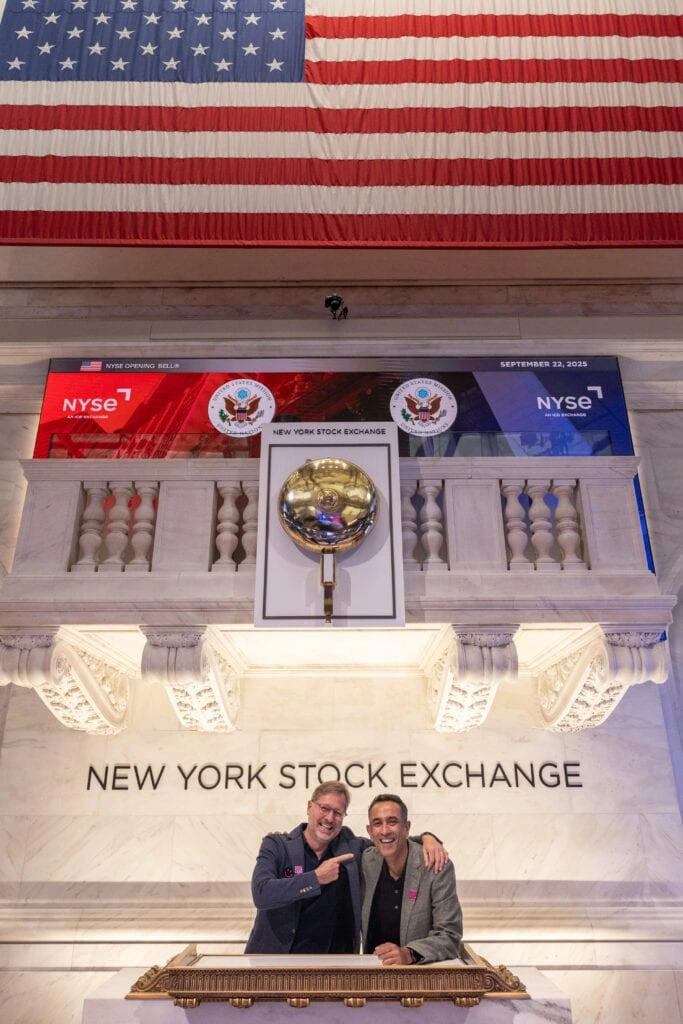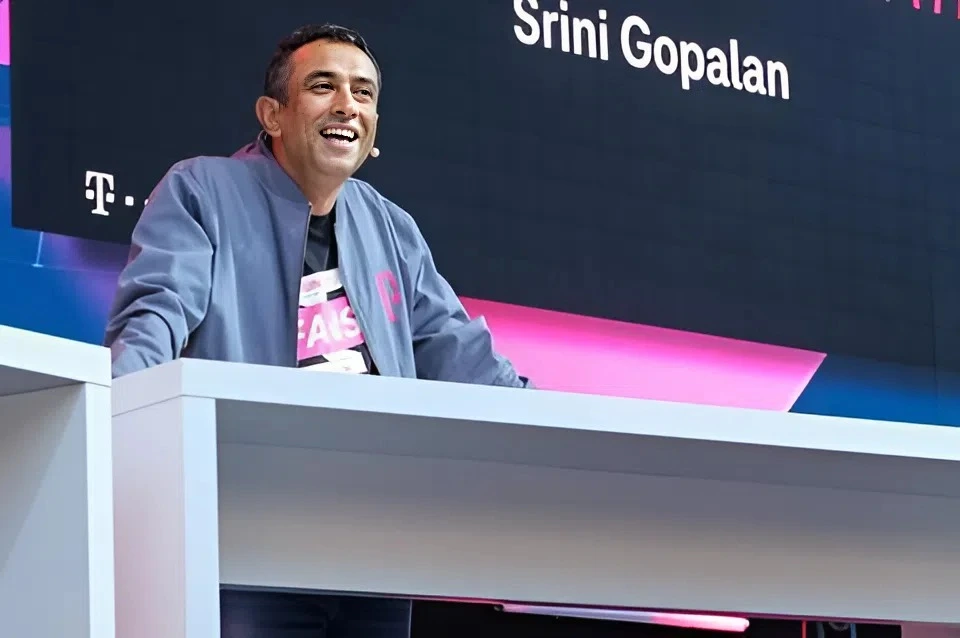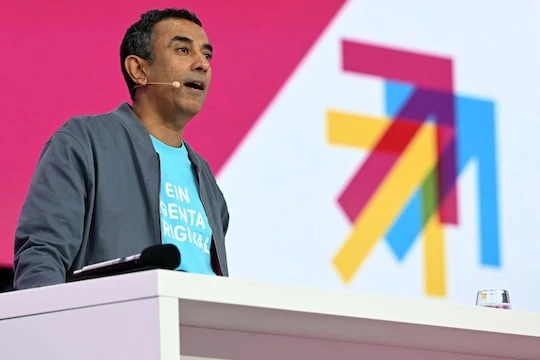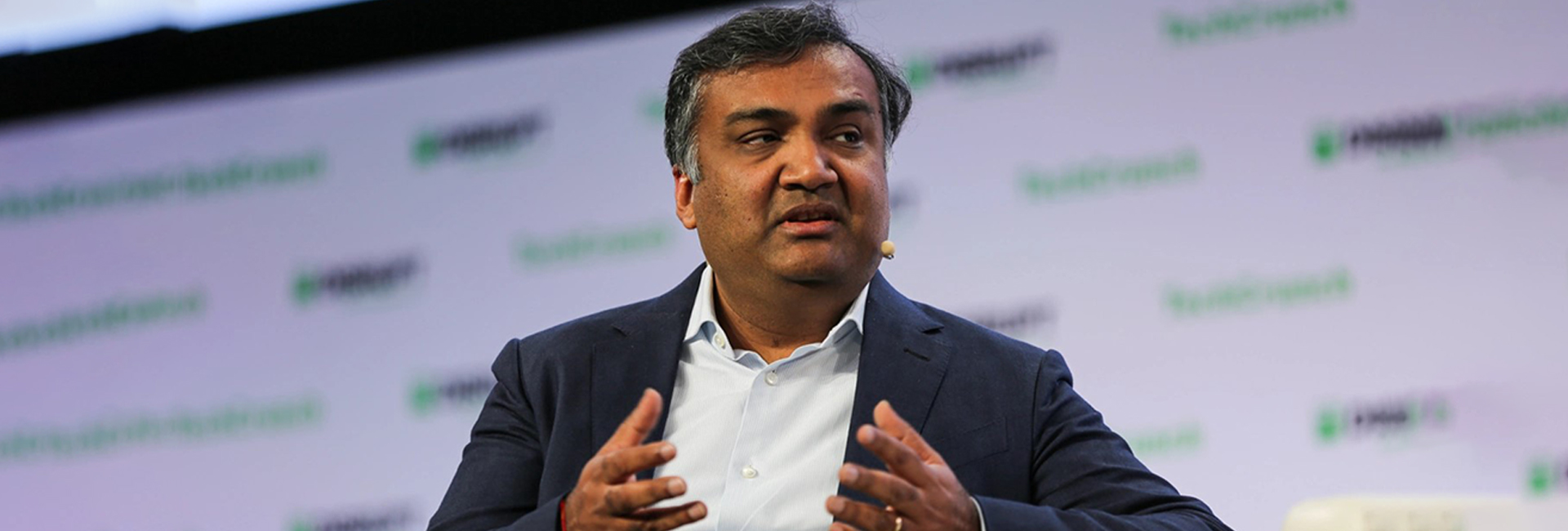(September 24, 2025) On November 1, 2025, Srini Gopalan will officially become Chief Executive Officer of T-Mobile US in a transition that resonates far beyond the wireless industry. The announcement of the 55-year-old Indian-origin executive’s appointment comes as the United States contends with a fraught immigration climate and a highly competitive telecom market.
Just days before T-Mobile’s announcement, the White House floated a proposal to levy a $100,000 one-time fee on H-1B skilled worker visas, framing it as a way to curb exploitation of early-career foreigners, prioritize higher wages and protect American jobs. Against this backdrop, Gopalan’s rise sends a message that despite political headwinds, global talent and cross-border expertise remain central to America’s technological future. Soon after the announcement, Gopalan, currently serving as T-Mobile’s COO, shared his joy in a social media post, saying, “I’m delighted to support this team as CEO and look forward to building an even brighter future together for T-Mobile and the millions of Americans we’re dedicated to serving every day.”

Mike Sievert and Srini Gopalan at the New York Stock Exchange following the announcement of Sievert handing the CEO reins over to Gopalan starting Nov. 1 | Photo Credit: T-Mobile
From Indian classrooms to global boardrooms
Gopalan’s journey began in New Delhi, where he attended Delhi Public School and later St. Stephen’s College, an institution known for nurturing India’s brightest minds. He went on to earn an MBA from the Indian Institute of Management Ahmedabad (IIM-A), one of the country’s most prestigious business schools. This academic arc shows that even with an education entirely in India, it is possible to rise and eventually lead a major American company.
His first professional chapter unfolded at Hindustan Unilever, where he joined as a management trainee. That early experience, steeped in the fast-paced demands of consumer goods, sharpened his instincts for operations and customer focus, skills that would later define T-Mobile’s celebrated “Un-carrier” culture.
From there, Gopalan’s career became a global odyssey. He took on senior roles across Asia, Europe, and the United States, each experience adding a new layer of expertise. In 2009, he became chief marketing officer for T-Mobile’s UK business, his first encounter with the brand under its parent company Deutsche Telekom. He later steered rapid growth at Bharti Airtel, India’s largest telecom operator, before joining Vodafone to oversee market expansions and mergers across Europe. Along the way he gained financial services acumen at Capital One and honed strategic skills at Accenture.
Most recently, as managing director of Telekom Deutschland GmbH, he doubled the company’s growth rate, expanded fiber networks to millions of homes, and oversaw digital transformations and 5G rollouts. This blend of consumer marketing savvy, telecom innovation, and strategic advisory experience gives him a 360-degree perspective on the connectivity business.

The T-Mobile boardroom and a carefully scripted succession
T-Mobile’s announcement reflects a multi-year succession plan led by outgoing CEO Mike Sievert, widely regarded as the most value-creating CEO in global telecom history. Under Sievert’s leadership, T-Mobile added tens of millions of customers and more than $200 billion in market capitalization, overtaking rivals to become the world’s most valuable telecommunications company. His next chapter as Vice Chairman will keep him close to the company’s strategic core, advising on innovation, talent development, and long-term planning.
“When I recruited Srini to be our COO, I knew he had the skills, experience and Un-carrier mindset to lead our company into the future,” Sievert said as he announced the transition. “One fact has become crystal clear: Srini is ready to lead.” His endorsement strongly hints confidence in Gopalan’s ability and also the value of continuity in a sector where network investments and customer trust are built over decades.
A vision to ‘unleash the un-carrier’
In a social media post, Gopalan captured both gratitude and ambition. “I’ve long been in awe of what this company has achieved—fearlessly reinventing wireless to serve customers in ways no one thought possible,” he wrote. “What lies ahead of us is even more exciting because over the last five years we have built America’s best network and digital/AI capabilities that are far ahead of anyone else in our industry. We can and will truly Unleash the Un-carrier!”
This declaration reflects more than optimism. Since becoming chief operating officer in January 2025, Gopalan has overseen T-Mobile’s technology, consumer, and business groups, steering a strategy to make the company the most data-driven, AI-enabled, digital-first telecom in the country. His next mandate is to sustain hypergrowth while deepening customer loyalty, even as the U.S. wireless and broadband markets approach saturation. With the largest and fastest 5G network in America, T-Mobile is now poised to extend its reach into 5G-enabled services, edge computing, and AI-powered experiences that will define the next decade of connectivity.

Disruption as corporate DNA
T-Mobile’s “Un-carrier” strategy, born from the idea of eliminating customer pain points, remains the envy of the industry. Under Sievert, the company combined aggressive 5G rollouts with customer-first pricing, forcing competitors to match its offerings and changing how Americans think about wireless service. Gopalan, who cut his teeth in consumer marketing at Unilever and Vodafone, is uniquely positioned to extend that disruption.
His track record at Deutsche Telekom proved his ability to scale fiber networks, lead digital transformations, and earn market-leading customer satisfaction scores. Observers expect him to double down on the very elements that turned T-Mobile into a juggernaut by expanding the 5G network, using artificial intelligence to personalize customer experiences and optimize network performance, and pushing fixed wireless broadband into homes once dominated by cable providers. He is also expected to pursue strategic acquisitions to reinforce T-Mobile’s dominance in spectrum and infrastructure, while exploring new revenue streams in cloud gaming, enterprise 5G solutions, and AI-powered smart home services.
The broader significance of his appointment
The symbolism of an Indian-born CEO leading a $200-billion U.S. telecom giant cannot be ignored. As immigration rhetoric hardens and the proposed H-1B fee unsettles Silicon Valley, Gopalan’s ascent is a counter-narrative to protectionism, demonstrating how American competitiveness still relies on global talent. His own trajectory of being educated in India, tested in Europe, and seasoned in U.S. boardrooms, embodies the transnational mobility that built today’s technology companies. Industry analysts note that T-Mobile’s dramatic growth has depended on exactly the kind of diverse, high-skill workforce that the new visa proposal could imperil. By elevating Gopalan, the company is sending a subtle but unmistakable message that innovation knows no passport.
Endorsements from a mentor
Sievert’s confidence in his successor is unequivocal. “Srini has been an incredible partner in shaping the future of T-Mobile as well as instrumental in leading our record growth this year,” he said. “He is highly skilled, passionate and incredibly knowledgeable, and above all he is obsessed with taking our employee and customer experience to the next level.” For investors, such praise is more than ceremonial. It assures the market that leadership continuity and strategic alignment will guide T-Mobile’s next phase, even as new technologies and regulatory pressures reshape the industry.
Challenges and opportunities on the horizon
Despite the company’s enviable position, Gopalan inherits formidable challenges. Regulatory uncertainty looms large, with shifting immigration and trade policies that could affect workforce planning and supply chains. Competition from Verizon and AT&T is intensifying as they pour resources into next-generation networks and bundled services. Economic headwinds such as inflation and fluctuating interest rates may also squeeze consumer spending and capital investment. Yet T-Mobile’s record financial performance and robust cash flow provide a solid foundation. Analysts predict continued subscriber growth and expansion into adjacent markets that will demand the same combination of operational discipline and bold innovation that has defined Gopalan’s career.
Indian-origin CEO in the American landscape
Gopalan joins a growing roster of Indian-origin leaders like Satya Nadella at Microsoft, Sundar Pichai at Alphabet, Arvind Krishna at IBM who head some of America’s most iconic companies. His rise is especially striking because telecommunications lies at the heart of national security and digital infrastructure, a sector where leadership decisions reverberate through every corner of the economy. For young professionals in India and across the diaspora, his story reinforces a powerful message: global careers are built on cross-cultural agility, relentless customer focus, and the courage to seize opportunities across borders.
In his own words, the significance is as much about people as technology. “Team Magenta is special because of how skilled, determined and thoughtful we are,” he remarked.
Inspiration for young Indians
As America debates how to manage its borders and talent pipeline, T-Mobile’s boardroom tells a different story that encompasses openness, collaboration, and shared innovation. Srini Gopalan’s appointment is more than a routine corporate succession; it is a declaration that the future of U.S. telecommunications will be shaped by leaders who connect worlds rather than divide them.

When he steps into the CEO suite this November, Gopalan will carry with him not only the aspirations of Team Magenta but also the hopes of a generation of young Indians who see in his journey the proof that talent and vision can transcend geography and politics even in uncertain times, and the inspiration that an education gained entirely in India can be the foundation for leading one of America’s most powerful companies.
- Follow Srini Gopalan on LinkedIn
ALSO READ: Shailesh Jejurikar: Set to become the first Indian CEO of Procter & Gamble in its 187-year history



